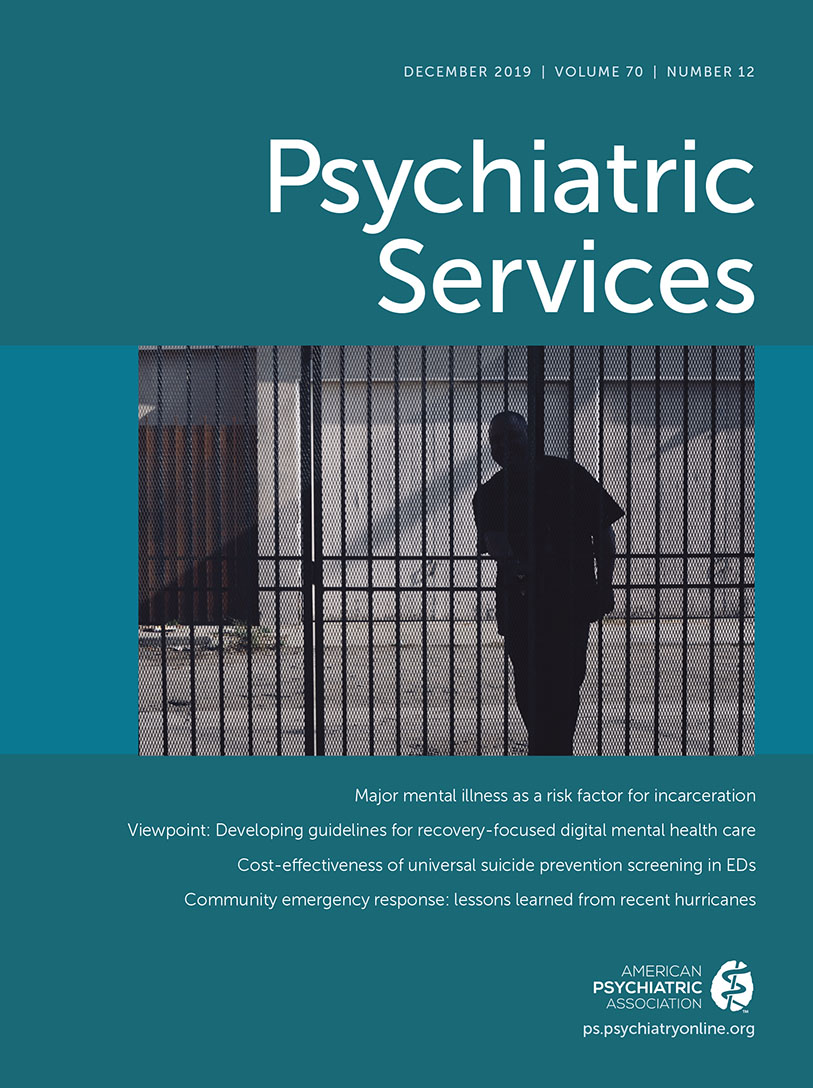Is “Personal Recovery” a Useful Measure of Clinical Outcome?
In this issue, the article by van der Krieke and colleagues, from the Netherlands, poses a significant challenge to the measurement of recovery as a clinical outcome. After translating and validating a Dutch version of the often-used Recovery Assessment Scale (RAS), the authors found no clinically significant differences between the RAS scores of four groups: persons judged not to be in remission from a nonaffective psychotic disorder, persons judged to be in remission from a nonaffective psychotic disorder, siblings of persons with nonaffective psychotic disorders who themselves have not experienced psychosis, and a control group of persons with no personal experience of psychosis themselves or in their family. In what is perhaps the first study to compare use of the RAS by persons with mental illnesses and those presumed not to have a mental illness, no clinically significant differences could be found. The authors thus raise an important question: “If service users report a recovery level similar to that of siblings and control group members, what is the meaning of recovery?”
There are at least two responses to this question. One response relates to the meaning of a recovery level as measured by the RAS. The authors use a definition of “living a meaningful and contributing life beyond the catastrophic effects of the illness” to distinguish the notion of personal recovery, in which they are interested, from the conventional notion of clinical recovery, which relates to the absence of symptoms and impairments characteristic of disorder. They note that this definition appears to apply specifically to persons with psychiatric disabilities in that it specifies “beyond the catastrophic effects” of illness but then go on to cite the features of personal recovery articulated by the CHIME framework of connectedness, hope and optimism, identity, meaning in life, and empowerment—all of which, they rightly point out, could be equally relevant to persons without psychiatric disabilities. They chose the RAS as the scale to assess personal recovery. The RAS was developed prior to CHIME and measures personal confidence and hope, willingness to ask for help, goal and success orientation, reliance on others, and domination by symptoms. So the reader is left to wonder, first, what exactly constitutes the meaning of personal recovery and second, whether it can be measured in levels.
The notion of personal recovery was originally proposed by the mental health consumer/survivor movement as an alternative to existing notions of clinical recovery. Personal recovery refers not to clinical improvement but to living a full life in the presence of disorder. In this sense, the most important domain of the RAS, if it is to be used to measure personal recovery, is that of “no domination by symptoms.” But it is precisely this domain that the authors left out of the analysis beause it was considered “potentially inapplicable” to siblings and persons in the control group. With the exclusion of the one domain specific to living with mental illness and the retention of the items that could be equally applicable to all, it should not be surprising that service users endorsed a level of recovery similar to others. When it comes to the nature of their everyday lives outside of mental illness and its effects, service users are just like everyone else. That is the assumption at the base of the concept of personal recovery.
A second, related response to the authors’ main question about the meaning of recovery is to point out that personal recovery, being nonclinical in nature, is not an appropriate measure of outcomes within the context of the “clinical care trajectory.” Personal recovery is not intended to be a clinical outcome. Here I am in agreement with the authors, in that if clinicians are seeking measures to assess the effectiveness of psychiatric treatment (as opposed, for example, to that of rehabilitation or recovery supports), then we do indeed need “more personalized assessment procedures” that are based on the patients’ subjective experiences of mental illness per se. Such an assessment would constitute a patient-reported outcome measure (PROM) similar to those used in other branches of medicine. Important and useful in its own right, such a PROM would be more narrow in scope and would remain distinct from any notion of personal recovery, which has as much to do with the quality of a person’s sense of identity and belonging to a community as it does to subjective experiences of mental illness per se.



